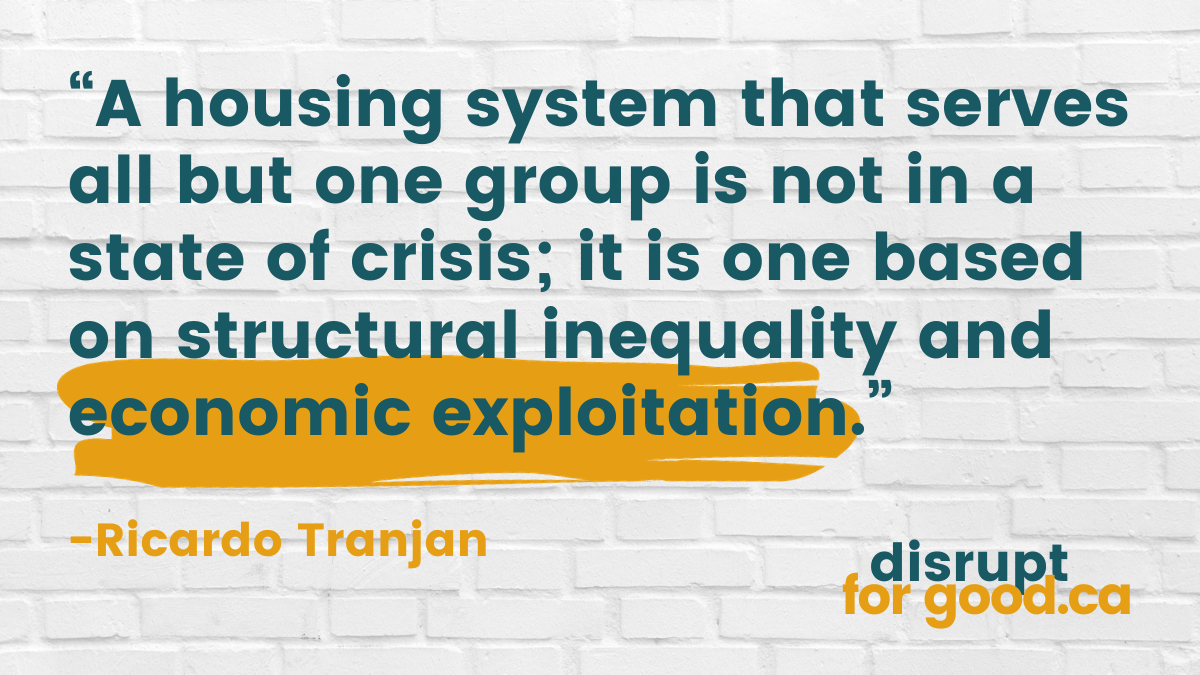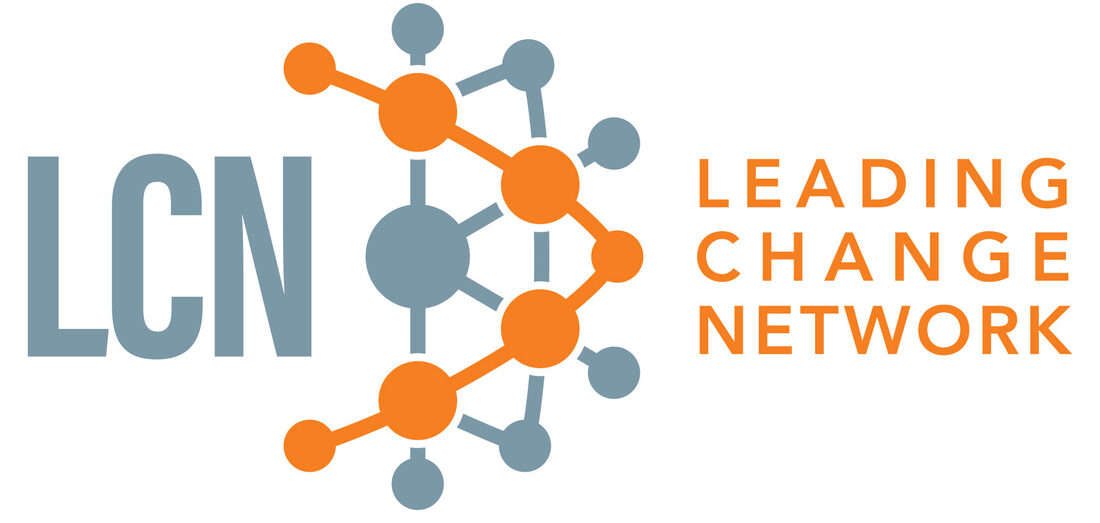|
As a devout housing advocate, I’ve used the term housing crisis many times in the last several years. But in The Tenant Class, author Ricardo Tranjan makes a compelling case that the housing crisis…is a myth. Tranjan, a political economist and senior researcher with the Canadian Centre for Policy Alternatives, points out that crises are “infrequent, surprising, and widely undesirable.”
“In contrast, Canada’s ‘housing crisis’ is a permanent state of affairs that harms people in, or in need of, rental housing; roughly one-third of the country’s households.” Homeowning households see their homes rise in value much faster than other investment options, while landlords, real estate investment firms, and developers see healthy profits. Banks make lots of money from mortgages, too. “A housing system that serves all but one group is not in a state of crisis; it is one based on structural inequality and economic exploitation.” Like Canada’s labour laws and norms, our housing system allows exploitation in the sense that it is entirely legal and socially acceptable for “some people to enrich on the backs of others. … Laws, institutions like landlord and tenant boards, and moral standards permit and legitimize wealth accumulation through rent collection.” If this were a real crisis, government intervention would be expected. Instead, “government actions in recent years include partial cancellation of rent controls, wage freezes, the use of excessive force in the clearing of homeless encampments, the fast-tracking of evictions through virtual hearings, and the failure to protect people living in multi-tenant housing. … The purpose of the rental market is not to ensure the highest possible number of families is securely housed. The purpose of the rental market is to extract income from tenants, and as far as this goal is concerned, it works like a charm!” Are you getting mad yet? Because this only brings us to page 5 of The Tenant Class. And I probably would have left it that and just said read the book, but then I participated in an affordable housing advisory committee meeting where I suggested that the problem wasn’t 100% residential supply and so our recommendations should include protections for renters. I was summarily dismissed, which really pissed me off, so I put on some angry girl band music and went for a walk around the block, came and sat back down, and made this list:
Words Matter Tranjan notes that how we talk about the issue shapes our ideas about what the response should be. The mainstream narrative that the housing crisis is a supply problem and the corresponding recommendations to make it cheap and easy for developers to build whatever they want, wherever they want - that benefits investors and developers. The people who have the power are shaping the narrative. And the mainstream narrative that most tenants are students or don’t work, and that tenants are mostly homeowners-in-waiting mischaracterizes who rents in Canada, and it is simply not supported by data. Tenants are as likely to work as homeowners; they just get paid less. And ninety-six percent of tenants surveyed in a study that Tranjan cites had no intention of owning a home in the near future, either by choice or due to the cost. Disrupting Harmful Narratives As advocates and organizers, how can we insert some alternate narratives into this conversation? Here are a few suggestions I’ve pulled from the book:
I’ll give Tranjan the final word: “Every effort matters. Every abusive rent increase represents not only a landlord trying to squeeze money from a tenant but the landlord class appropriating income from working-class families, income that increases their wealth and influence, consolidating their ability to extract yet more income from yet more tenants. By the same token, every rent increase dropped, every stopped eviction, every repair completed, and every political win against landlords is a historic victory for the tenant class.”
0 Comments
Leave a Reply. |
AuthorI'm Jennifer. I am an advocacy and communications strategist working with multiple charities and nonprofits. And I want to disrupt our sector for good. Archives
April 2024
Categories |


 RSS Feed
RSS Feed
